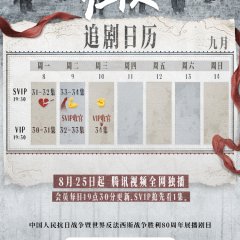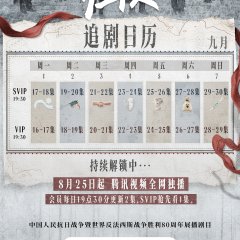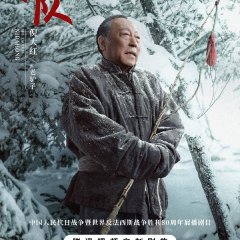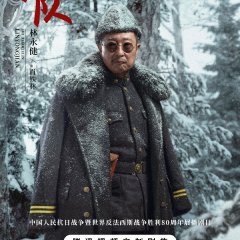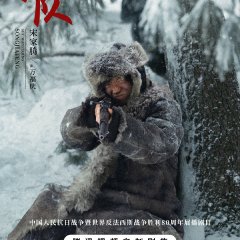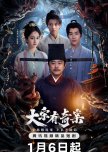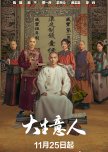In the winter of 1937, the Japanese Kwantung Army launched the "Three Rivers Crusade" against the Northeast Anti-Japanese United Army according to their three-year "rectification" plan, and the struggle of the Anti-Japanese United Army entered the most difficult period. In the autumn of 1938, the fierce battle caused a small team of the Northeast Anti-Japanese United Army to suffer heavy losses. Before breaking out, the platoon leader "Old Shandong" agreed with the soldiers that the survivors would go to the eight pines outside Songlin Town, Mudanjiang, carve their numbers on the trees, and regroup and return to the team. From then on, "Old Shandong" and five other anti-Japanese fighters embarked on a life-and-death journey back to the team. Some people were separated, some died, some betrayed, and some joined the 88th International Brigade to start new training and fighting. In 1945, on the eve of the victory of the Anti-Japanese War, three soldiers who joined the 88th International Brigade returned to the Northeast with a secret mission, and won over their comrades who had wavered in their thoughts to rejoin the team and complete the arduous task together. (Source: Chinese = Weibo || Translation = kisskh) Edit Translation
- English
- Français
- हिन्दी
- Português (Brasil)
- Native Title: 归队
- Also Known As: 歸隊 , Gui Dui
- Director: Zhao Yang, Zang Xi Chuan
- Screenwriter: Gao Man Tang
- Genres: Historical, Drama
Where to Watch The Long Way Back
Cast & Credits
- Hu JunLu Chang Shan / Lao Shan DongMain Role
- Li Nai WenTang De Yuan / Tang Er YeMain Role
- Chen Jing KeTian Xiao GuiMain Role
- Mabel YuanHua ErMain Role
- Ren BinGao Yun HuMain Role
- Song Jia TengFu QingMain Role
Reviews

A gritty show about resistance in its many forms.
What happens when you return home after years of fighting, only to find that the war is still raging, and your country is falling deeper under imperialist occupation?This ensemble drama explores that very question. When the characters split apart, the series breathes life into each of their stories while also expanding the scope of its world.
At first, I expected a war series centered primarily on action. Instead, what unfolds is a profound study of diverse characters placed in the countless situations that only a brutal occupation could create. And at the heart of it all is the squad leader, played by the incredible Hu Jun.
What a character! From the commanding figure of his unit, he grows into an empathetic yet unyielding warrior, embodying a paternal role for his subordinates while never losing sight of the greater mission: to drive out the Japanese invaders. A natural leader and motivating force, his journey spans years of relentless battles, each fought with resolve and vision.
What keeps the series fresh is its bold transitions between genres: guerrilla warfare, prison drama, human experimentation (Unit 731), espionage, and more. Each arc reshapes the show, preventing it from becoming repetitive. After all, 34 episodes of forest skirmishes alone would be hard to sustain.
It’s been a long time since I felt the energy and drive to binge-watch something this quickly. The strongest elements are undoubtedly the storytelling, pacing, and performances. The series balances dynamic action with powerful character-driven moments, pulling you in episode after episode while also leaving room to pause and reflect on the weight of it all.
What impressed me most was how well the narrative managed its large cast. Every core character is compelling in their own way, and the constant shifting of perspective and tone gives the story both depth and breathing space.
In the end, this is a must-watch for anyone interested in Chinese television or in better understanding a pivotal moment in China’s history, one that helped shape the nation we know today.
Extraordinary Drama
This amazing Chinese drama---one of the best of 2025---stars Hu Jun in the role of a platoon leader in the Northeast Anti-Japanese United Army during the 14-year Second Sino-Japanese War.After his team is scattered, Hu Jun, as Lu Chang Shan, searches for each of them–-bringing them back together, one by one to continue their mission to defeat the Japanese and reclaim their land.
I’m usually not a fan of war movies, but this drama is exceptional. It’s never boring, and never repetitive---showing how individual human beings dealt with the challenges of food shortages, prison camps, cruelty, deprivation, and loss.
While there’s plenty of suffering, this drama is not a downer. It’s human, entertaining, and sprinkled throughout with good-natured banter. In fact, it’s mostly uplifting, depicting the best of human nature, as well as the worst. The camera work, the OST, and especially the acting is immensely moving and poignant.
Americans, as a whole, unfortunately, have almost no knowledge of the degree to which China suffered, but ultimately prevailed, in World War II. Even this drama barely scratches the surface. (For a more granular and depressing account of the unmitigated horrors of this conflict read The Rape Of Nanking: The Forgotten Holocaust Of World War II by Iris Chang.)
I can’t say enough good things about Hu Jun, who plays the heroic, but extremely kind and compassionate, Lu Chang Shan, a man who nurtures each member of his team as needed, and is also wiley and shrewd when necessary. Other actors who deserve respect for their portrayals are too numerous to mention–really, almost all of them.
I don’t often give praise like this. But this series is a triumph of Chinese cinema. Don’t miss it.










